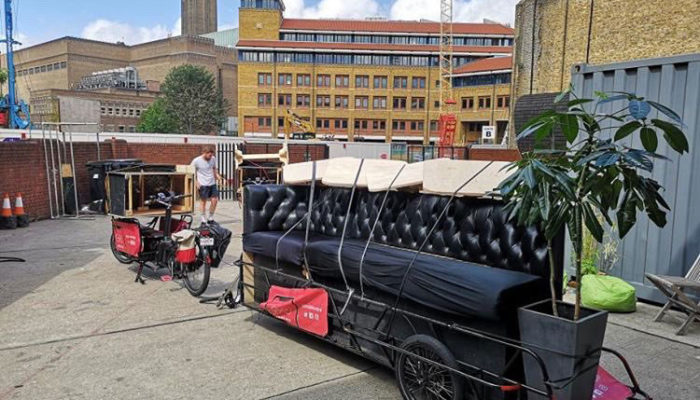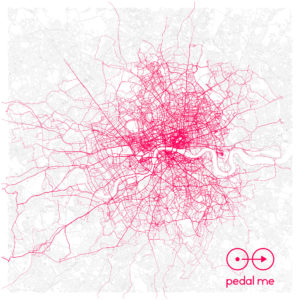
Most of us are breathing toxic fumes the minute we step outside our front door. With a rise in e-commerce, we need a concerted effort to decarbonise our transport system and clean up our air.
Polluting diesel vans are rattling around the country more than ever before. Last year, annual van traffic rose to a new peak at 55.5 billion vehicle miles – more than double 25 years earlier. And that’s before thousands more of us embraced online shopping and home deliveries as a result of lockdown.
With the vast majority of UK citizens living in cities, it’s particularly worrying that the number of miles driven by vans on urban minor roads has risen by almost 50% since 2010. We know that most of these vehicles are diesel, as there are still few alternatives available.
There is a concerning gap between real-world emissions and laboratory-based legal limits amongst the top selling diesel vans. Not only is diesel engine exhaust carcinogenic, it is also a major source of nitrogen oxides (NOx) pollution, which include lung- and heart-damaging nitrogen dioxide. Breathe London data shows diesel vans contribute up to 25% of NOx pollution in certain parts of the capital.
Ending the sale of new diesel vans by 2030 is essential. To encourage the electric van market, the Government should mandate manufacturers to sell electric models, and provide incentives for businesses to invest in electric vehicle fleets.
But replacing the same type of vehicle for another is not enough. It’s time to take cargo bikes seriously. In London, Pedal Me is among companies leading the way. It operates a fleet of e-cargo bikes within a nine-mile radius of the city, each able to transport passengers and items of up to 300kg weight. And its fleet is growing ahead of a huge expansion to the city’s Ultra Low Emission Zone, creating new jobs in the process.
In March 2020, as the UK entered its first lockdown, the company helped Lambeth Council deliver 10,000 care packages to families in need. Over the course of six weeks, the Pedal Me fleet covered 20,000km as its riders shifted 150,000kg of goods across the borough of Lambeth.
Creating Zero Emissions Zones in cities would encourage further innovation within the electric vehicle and cargo bike sectors. So let’s see some action to instigate them. We’ve heard that London, for example, plans to ‘implement zero emission zones in town centres from 2020.’ But starting when and where? And how many? Candidates to be the next Mayor of our great capital city must demonstrate the assertive leadership we need.
Of course, all the above moves need to go hand in hand with reducing the number of vehicle journeys made. There’s no doubt that the courier and logistics industry was a great help during the initial lockdown by keeping goods moving along supply chains in spite of factory closures, staff shortages and our switch, en masse, to online shopping. But we need to be mindful of how post-pandemic life is changing demands being placed on our transport systems, and the implications that may have for congestion, pollution and our climate.
A May 2020 study by McKinsey found that more UK adults expect their digital shopping habits for grocery and non-grocery items to increase or not change post-pandemic, than anticipate that those behaviours will decline. So if we want to have fewer of those polluting diesel vans speeding down our streets, we urgently need policies to shape the future consumer landscape – before it shapes us.
Next-day deliveries aren’t the most efficient way to transport goods. So why not nudge consumers with a small charge, so they choose to pick up non-urgent deliveries within a few days by walking or cycling to a local high-street collection point? We’ve seen the difference just 10p has made to plastic bag consumption. We could plan better and restrict deliveries to certain times of day so it isn’t a free-for-all. These actions could help to make transport more efficient and reduce the number of journeys made.
If Government leaders think outside of the delivery box, they can deliberately curb our growing reliance on polluting diesel vans. Our towns and cities will be safer, quieter and less polluted if they do.

Images by Pedal Me
About the Author
This post was written by Oliver Lord. Oliver Lord is Head of Policy and Campaigns for Environmental Defense Fund Europe
